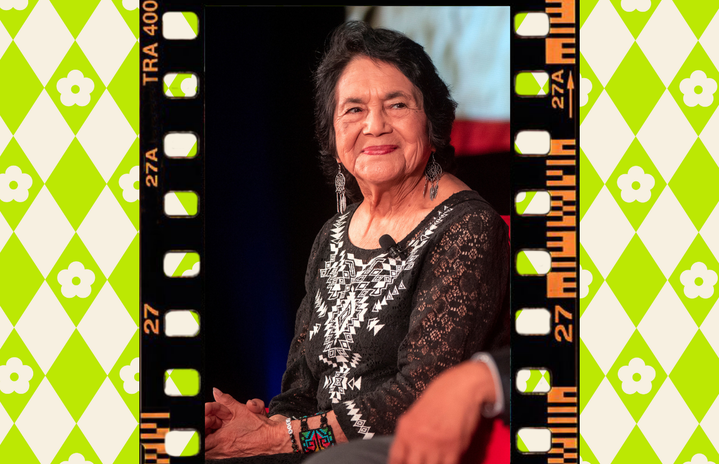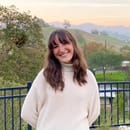Like most movements, the environmental movement has been tremendously whitewashed — however, it is important to recognize that the fight for environmental change and climate justice would be nowhere without women of color. Combining environmental justice with social and racial justice, these women of color have made large strides within their communities and the greater world to lead the environmental movement.
- Marjorie (Margie) Eugene-Richard (1941-)
-
Richard grew up in Norco, Louisiana in the Old Diamond neighborhood, a primarily Black community infamously nicknamed Cancer Alley. The neighborhood was sandwiched between a Shell plant and oil refinery, leading many members of the community to suffer from cancer, asthma, and other serious health problems. The final straw for Richard and the rest of the community was in 1988, when a catastrophic industrial accident killed seven workers, injured 48 residents, and released 159 million pounds of toxins into the air.
A year later, Richard founded Concerned Citizens of Norco and demanded Shell to provide the community with resettlement costs from the accident. After years of fighting and campaigning, Shell finally agreed to reduce its emissions and pay for the relocation of citizens who lived close to the plant in 2000. Four years later, Richard was the first African American to win the Goldman Environmental Prize, a prestigious award that recognizes grassroots environmental activists.
- Dolores Huerta (1930-)
-
Dolores Huerta is best known for her tireless work fighting for American farm workers’ rights. Along with civil rights activist Cesar Chavez, Huerta co-founded the United Farm Workers Labor Union in the early 1960s to help protect American farm workers. In an effort to better the working conditions of American farm workers, Huerta uncovered the country’s heavy reliance on toxic pesticides and how these pesticides detrimentally impacted farm laborers’ health. At 91-years-old, Huerta continues to speak about and advocate for environmental and social change through the Dolores Huerta Foundation, a social justice grassroots organization dedicated to inspiring local and national change.
- Berta Isabel CáCeres Flores (1971-2016)
-
Born in Honduras in 1971, Berta Isabel Cáceres Flores is best known for her relentless work protecting the Lancan people and land. At the age of 19, Cáceres co-founded the National Council of Popular and Indigenous Organizations of Honduras (COPINH), a council created in response to the dangers of illegal logging within the Lancan community.
Several years later, Río Blanco community members reached out to Cáceres after constructors inhabited their town to build a hydroelectric dam in the Guadalupe River. While Cáceres first began filing complaints against the construction, her efforts eventually sparked a local years-long movement. In 2013, Cáceres and civilians built a human blockade to block off the road to the construction site, resulting in criminal charges and even murder. For several years, Cáceres lived in fear until she was assassinated in her own home in 2016. Despite her tragic murder, Cáceres is remembered for her persistent work in advocating for Honduran communities.
- Vanessa Nakate (1996-)
-
Only 25-years-old, Vanessa Nakate was one of the youngest climate activists to speak at the COP25 gathering in Spain, which was the 25th United Nations Climate Change conference. Born and raised in Uganda, Nakate first began her environmental work in 2018 in response to the climate crisis in her country. Inspired by Greta Thunberg’s climate strikes and angered by the lack of environmental action in her community, Nakate striked every Friday starting in January 2019, which eventually led her to found the Rise Up movement in Africa.
- Aurora Castillo (1914-1998)
-
Endearingly known in her East Los Angeles community as la doña, Aurora Castillo was a climate change activist who strived for local change. Her work is proof that it is never too late to advocate for change and to join the environmental movement — in fact, most of her activism didn’t happen until she was in her seventies. Castillo helped found the Mothers of East Los Angeles (MELA), an organization dedicated to addressing environmental racism within their community. With the help of MELA, Castillo helped stop the construction of both an oil pipeline and a toxic waste incinerator from being built in East Los Angeles.
- Winona Laduke (1959-)
-
Born in Los Angeles, Winona LaDuke is best known for her work protecting Native lands. In 1985, LaDuke helped found the Indigenous Women’s Network (IWN), a tribal coalition of hundreds of Indigenous women activists devoted to preserving Indigenous lands and conserving their natural resources. She also founded the White Earth Land Recovery Project (WELRP), a nonprofit organization that buys back reservation land purchased by non-Native folks. LaDuke has also written extensive essays and books on Native American and environmental rights.
- Wangari Maathai (1940-2011)
-
The first African woman to win the Nobel Prize, Wangari Maathai founded the Green Belt Movement, an organization that uplifts rural Kenyan women in planting trees to build and empower their community. Over the past few decades, the organization has planted millions of trees in Kenya, playing a huge role in supporting the country’s reforestation efforts.
- Majora Carter (1966)
-
Born and raised in South Bronx, New York, Majora Carter saw firsthand the environmental injustices happening in her community. In 2001, Carter co-founded Sustainable South Bronx (SSBx), an organization that addresses both environmental and social issues in the South Bronx area. Upon its founding, Carter aided in transforming the Hunt’s Point Riverside Park from an illegal dumping ground to a recreational waterfront oasis.
- vandana shiva (1952-)
-
Growing up in a forestry family, Vandana Shiva cultivated a close relationship to the environment at an early age that inspired her climate activism later in her life. In 1982, Shiva founded the Research Foundation for Science, Technology, and Natural Resource Policy (RFSTN), an organization committed to developing more sustainable methods of agriculture. She also worked on smaller grassroots projects to prevent clear-cut logging and the construction of large dams.


